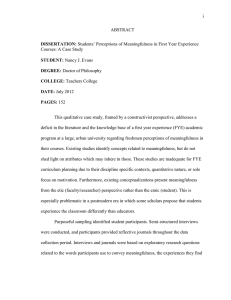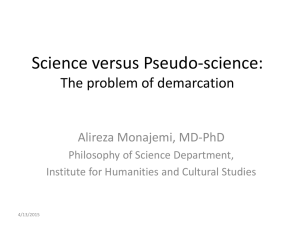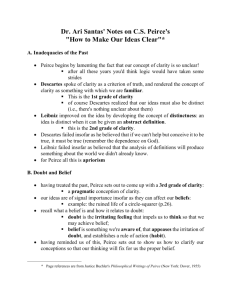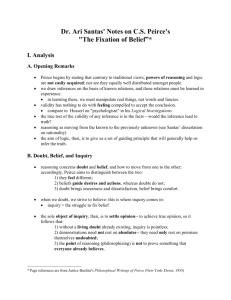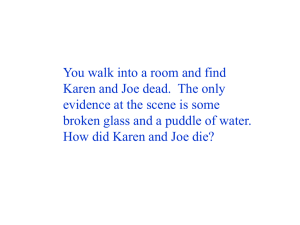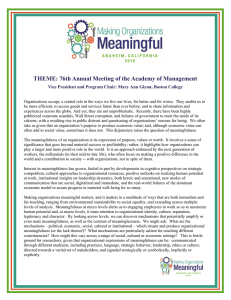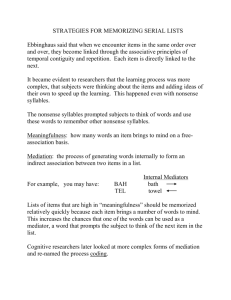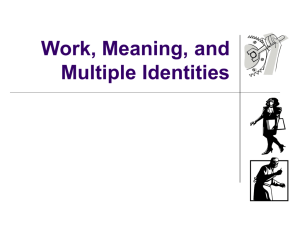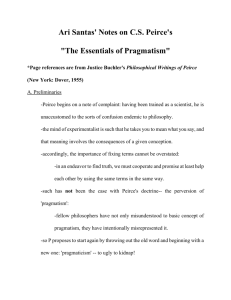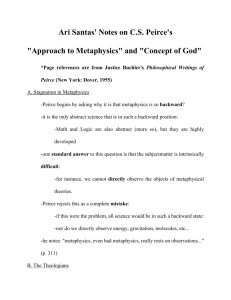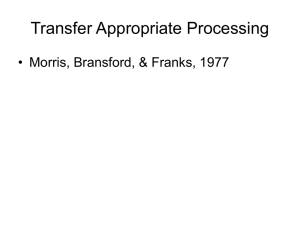PHIL 471: Contemporary Philosophy of Science Homework #1 Due
advertisement
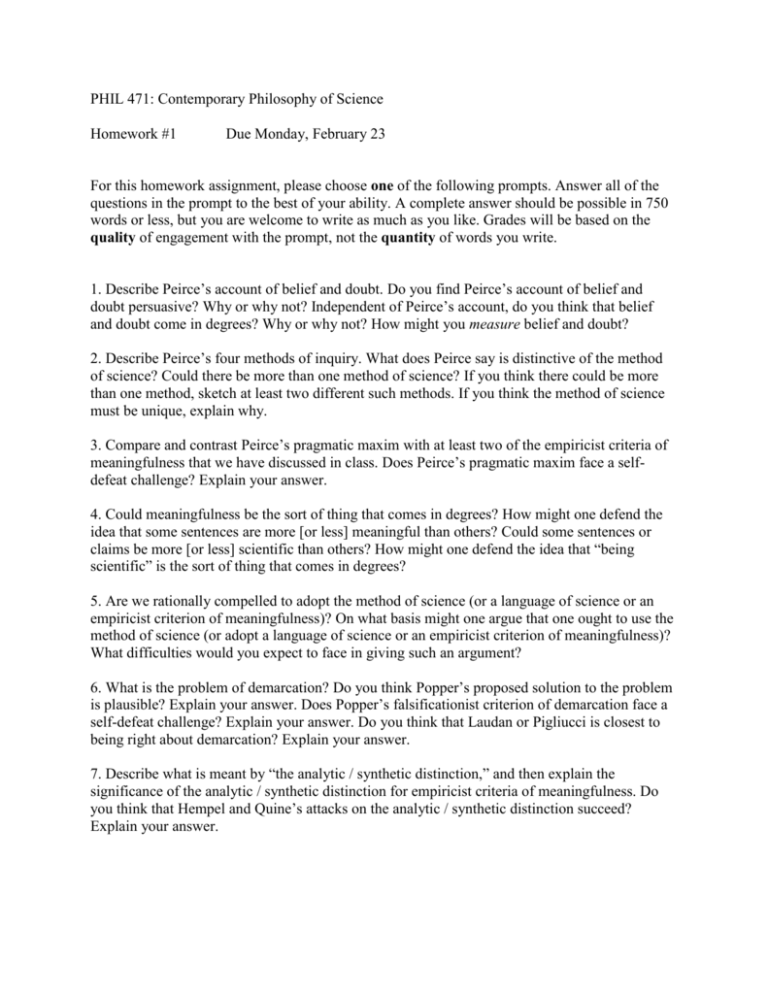
PHIL 471: Contemporary Philosophy of Science Homework #1 Due Monday, February 23 For this homework assignment, please choose one of the following prompts. Answer all of the questions in the prompt to the best of your ability. A complete answer should be possible in 750 words or less, but you are welcome to write as much as you like. Grades will be based on the quality of engagement with the prompt, not the quantity of words you write. 1. Describe Peirce’s account of belief and doubt. Do you find Peirce’s account of belief and doubt persuasive? Why or why not? Independent of Peirce’s account, do you think that belief and doubt come in degrees? Why or why not? How might you measure belief and doubt? 2. Describe Peirce’s four methods of inquiry. What does Peirce say is distinctive of the method of science? Could there be more than one method of science? If you think there could be more than one method, sketch at least two different such methods. If you think the method of science must be unique, explain why. 3. Compare and contrast Peirce’s pragmatic maxim with at least two of the empiricist criteria of meaningfulness that we have discussed in class. Does Peirce’s pragmatic maxim face a selfdefeat challenge? Explain your answer. 4. Could meaningfulness be the sort of thing that comes in degrees? How might one defend the idea that some sentences are more [or less] meaningful than others? Could some sentences or claims be more [or less] scientific than others? How might one defend the idea that “being scientific” is the sort of thing that comes in degrees? 5. Are we rationally compelled to adopt the method of science (or a language of science or an empiricist criterion of meaningfulness)? On what basis might one argue that one ought to use the method of science (or adopt a language of science or an empiricist criterion of meaningfulness)? What difficulties would you expect to face in giving such an argument? 6. What is the problem of demarcation? Do you think Popper’s proposed solution to the problem is plausible? Explain your answer. Does Popper’s falsificationist criterion of demarcation face a self-defeat challenge? Explain your answer. Do you think that Laudan or Pigliucci is closest to being right about demarcation? Explain your answer. 7. Describe what is meant by “the analytic / synthetic distinction,” and then explain the significance of the analytic / synthetic distinction for empiricist criteria of meaningfulness. Do you think that Hempel and Quine’s attacks on the analytic / synthetic distinction succeed? Explain your answer. 8. Describe the Duhem-Quine Problem. Describe the significance of the problem for empiricist criteria of meaningfulness and for Popper’s proposed solution to the demarcation problem. Give a detailed, concrete example from actual scientific practice (different from the one in class) illustrating how testing a theory depends on auxiliary assumptions. 9. Step back and think about what talking about method, meaningfulness, and demarcation has to do with the practice of science itself. Is any of what we have been doing in the course so far of any practical value for scientists? If so, how so? If not, why not? You might find it useful to recall the algorithmic account of scientific method with which we began the course. 10. Attack or defend the claim that the following sentence is a meaningful, scientific hypothesis: Life, the universe, and everything was designed by a super-intelligent being or beings. In giving your argument, be sure to discuss the relevance of the various criteria of meaningfulness and demarcation that we have discussed.
